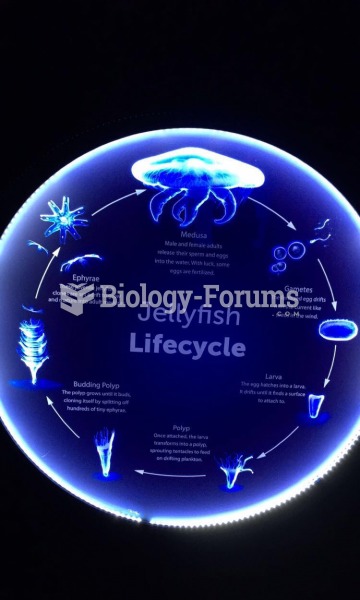|
|
|
There used to be a metric calendar, as well as metric clocks. The metric calendar, or "French Republican Calendar" divided the year into 12 months, but each month was divided into three 10-day weeks. Each day had 10 decimal hours. Each hour had 100 decimal minutes. Due to lack of popularity, the metric clocks and calendars were ended in 1795, three years after they had been first marketed.
By definition, when a medication is administered intravenously, its bioavailability is 100%.
Many medications that are used to treat infertility are injected subcutaneously. This is easy to do using the anterior abdomen as the site of injection but avoiding the area directly around the belly button.
The ratio of hydrogen atoms to oxygen in water (H2O) is 2:1.
A seasonal flu vaccine is the best way to reduce the chances you will get seasonal influenza and spread it to others.







